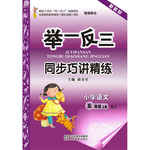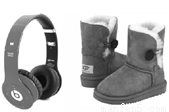题目内容
At home, ordering food from a menu is a normal, everyday routine. I don’t even give it a second thought. In China, it’s a whole other story! Here, ordering is a fun game of trial and error, and the adventure begins before the food is even served!
Many restaurants in central Beijing advertise “English language menus”, but the translations can just add to the confusion. Although accompanying pictures can be a helpful relief, the translations often make the whole experience even more amusing. During my first few weeks in China I tried some delicious dishes with strange names. As an experiment, my friends and I would order things like “students addicted to chicken gristle (软骨)” and “red burned lion head”. It was always fun to see what landed on our table. Eventually we learned that “lion head” was actually pork, and “students” are “addicted” to diced (切碎的) chicken with green pepper.
Recently, I came across a busy restaurant down a narrow side street in a Beijing hutong. It was lunchtime and the small room was packed with people sitting on small stools (凳子) eating noodles. I was hungry and cold, and the steaming bowls looked irresistible! I sat myself down and called out for a “caidan!” In response, the waitress pointed to a wall at the back of the restaurant. The wall was full of Chinese characters describing numerous dishes. There was only one sentence in English: “crossing over the bridge noodles”.
I had never heard of the dish and had no idea what it would taste like. I took a gamble and ordered one bowl of “crossing over the bridge noodles”. A few minutes later the waitress carried over a heavy bowl full of broth (肉汤) and I quickly dug in. It was the best bowl of noodles I had ever tasted! I have been back again and again and each time I point at the one English sentence – “crossing over the bridge noodles”. I always enter a restaurant in China feeling excited and a little nervous. Who knows what the next ordering adventure will reveal?
1.How does the writer find the English-language menus in many of Beijing’s restaurants?
A. Confusing but amusing. B. Easy to understand.
C. Boring and annoying. D. Accurate and helpful.
2.The underlined word “gamble” in the last paragraph probably means ______.
A. taste B. look
C. step D. risk
3.The passage mainly deals with ______.
A. the author’s favorite Chinese dishes
B. the fun the author had ordering food in China’s restaurant
C. a comparison between Western food and Chinese food
D. the correct way to translate the names of Chinese dishes into English
4.The passage is developed mainly in the form of _____________.
A. examples and statements B. comparison and conclusion
C. causes and effects D. time and description
 举一反三同步巧讲精练系列答案
举一反三同步巧讲精练系列答案 口算与应用题卡系列答案
口算与应用题卡系列答案 名师点睛字词句段篇系列答案
名师点睛字词句段篇系列答案


 ),并在其下面写出该加的词。
),并在其下面写出该加的词。